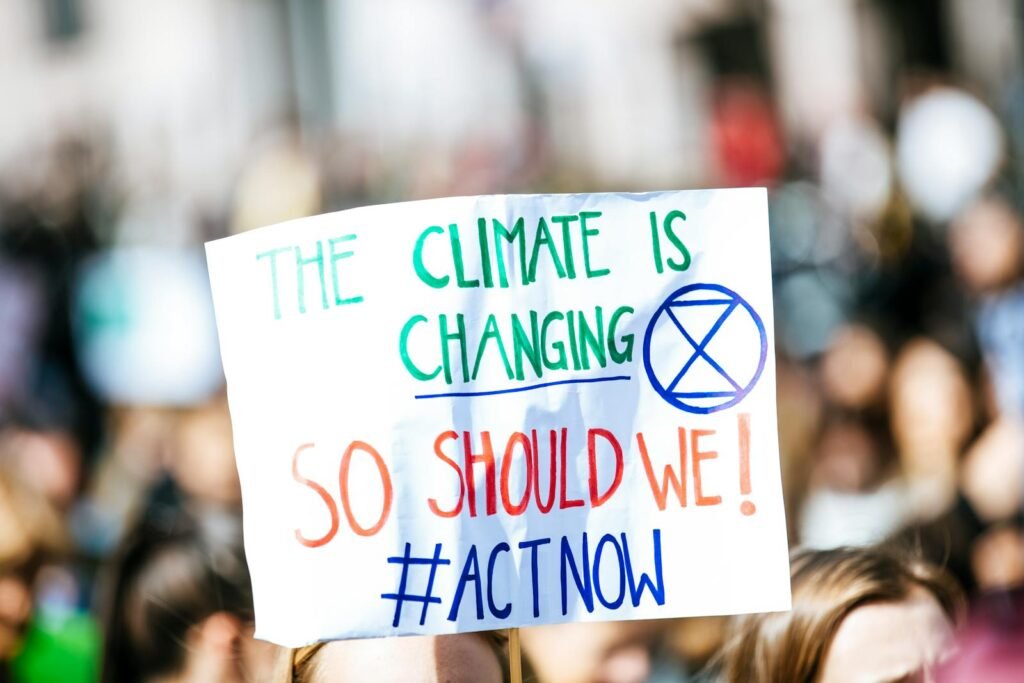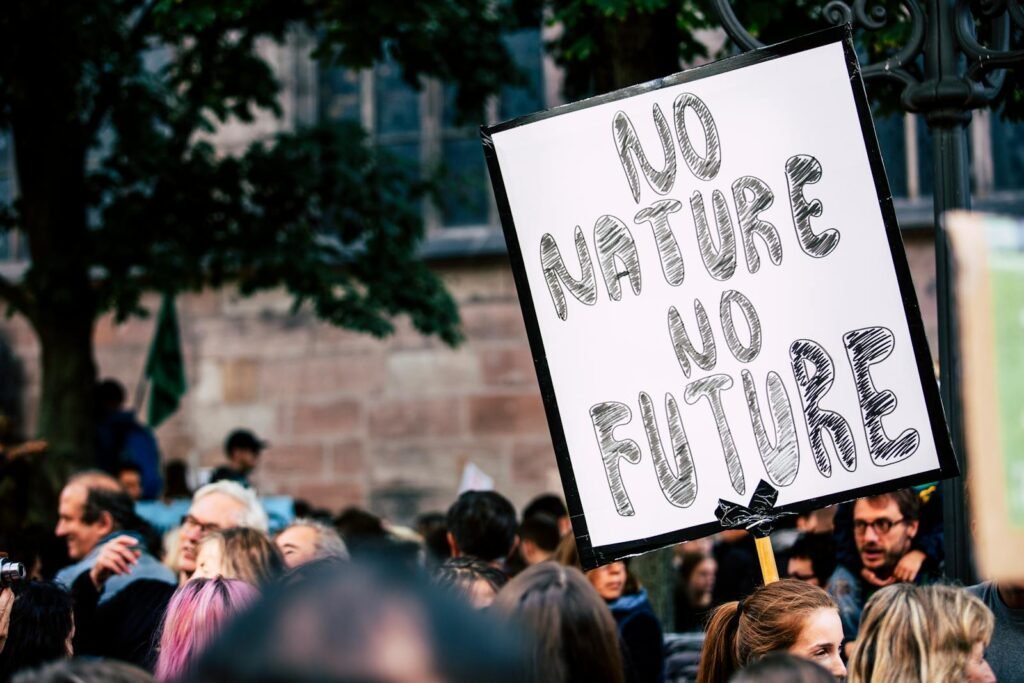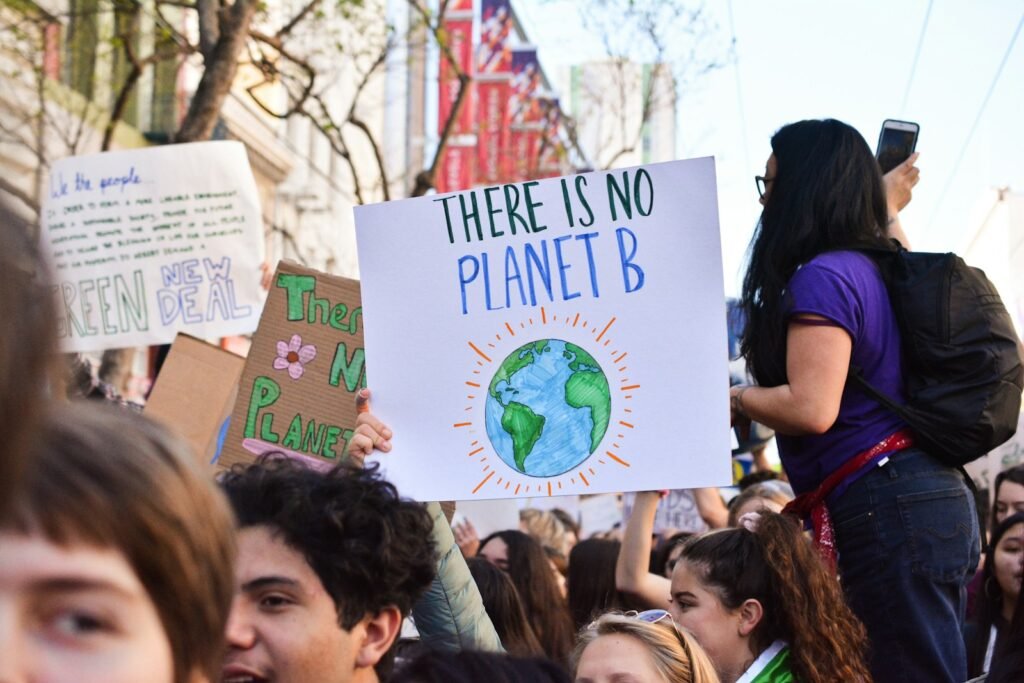Pretty much every politician seems to be avoiding taking real action on climate change, because they think no one cares about net zero anymore. That’s not what the numbers tell us, though. While political figures are growing more skeptical of these policies, the British public is still largely supportive of climate action policies, even when their leaders appear to be oblivious. This gap is more than just a misinterpretation of public opinion; it’s a reckless error that can derail the UK’s climate targets. Why have all the politicians missed the key point? And what does it mean for decision makers when they believe that a silent minority is an overwhelming, silent majority?
The Myth of Public Apathy: What the Polls Really Say

People are still very worried about climate change, even though politicians think otherwise. The DESNZ Public Attitudes Tracker says that 89% of Britons know about the Net Zero 2050 goal, and 52% say they know “a fair amount” or “a lot” about it. YouGov’s 2025 Earth Day report, on the other hand, found that 84% of Britons think the climate is changing, and 67% of them think it’s because of what people do. Even among Conservative voters, 55% agree that climate change is caused by people. Reform UK supporters are the outliers; only 39% agree.
Politicians, on the other hand, always underestimate how much people want renewable energy. Seventy-two percent of Britons support onshore wind farms in their area, but MPs think only 19% of the public supports them, a shocking 53-point difference. This false belief is affecting policy, as leaders are afraid to push for bold actions because they think there will be backlash when there isn’t.
Why Politicians Get It Wrong: The Loud Minority Problem
Politicians are not ignoring what people think; they are just listening to the wrong people. There are two sides to the debate: climate activists who are willing to glue themselves to roads and hardline skeptics who call Net Zero a “woke agenda.” Both are vocal minorities, and the media and lobbying groups make them seem bigger.
For instance:
- Fossil fuel lobbyists spend ten times as much as renewable energy lobbyists.
- Even though wind energy supports 150,000 U.S. jobs and adds $20 billion to the economy each year, conservative media often say that climate policies hurt the economy.
This feedback loop that isn’t fair creates a false consensus effect: MPs think that the loudest voices speak for the majority. But most people are in the middle: they care but aren’t extreme, and they support but don’t vote on just one issue.
The Silent Majority: What Everyday Britons Really Want

When citizens’ panels are convened groups demographically representative of the UK participants express clear but pragmatic climate concerns:
- They want things to change, but they don’t think their own efforts will make a difference.
- They don’t trust what politicians say because they see delays as excuses, not practical reasons.
- They put co-benefits first: jobs in the area, cheaper energy, and better transportation.
The Climate Change Committee panel found that people support policies that make life better, like subsidizing home insulation or renewable projects that pay for local services. Politicians, on the other hand, keep talking about climate action as a sacrifice instead of an opportunity.
The Reform UK Effect: How a Fringe Party Warps the Debate

The UK’s anti-Net Zero position has gained support, winning council seats by portraying climate policies as elitist and expensive. But their power is not in line with the number of people who vote for them:
- Only 4% of people in the UK say that climate change isn’t real.
- But their messages have scared both Labour and Conservatives, which has led to weaker promises.
This is similar to what is happening in the U.S., where Republican elites pushed for skepticism even as Democratic concerns grew. What did you learn? If mainstream parties don’t fight back, fringe groups can take over the story.
The Leadership Gap: Why Politicians Fear Their Own Voters
Many times, MPs confuse skepticism with opposition. In practice:
- 77% of individuals in the UK are concerned about climate change. Though this has dropped from 85% in 2021, it is still a strong majority.
- 62% of individuals do not agree with the statement that worries about climate change and “global warming” are “exaggerated.”
But leaders always seem to misread their audience because of an overabundance of caution stemming from:
- Fossil fuel reliant industries are warning that N jobs will be lost (plugged right into fear mongering).
- Right-leaning media connoting Net Zero as a culture war/ war on free speech.
What happened? Politicians: self-fulfilling caution – the less they talk about climate policy, the more untrustworthy they seem, and the more people distrust them.
How to Fix the Disconnect: A Blueprint for Climate Leadership
- Change the Story
- Stop framing climate action as a sacrifice; instead, talk about how it will lower bills, create jobs, and make energy more secure (for example, wind farms bring in $2 billion in local tax revenue each year).
- Get the Quiet Majority Involved
- As seen in more than 30 local councils in the UK, make citizens’ assemblies bigger to help shape policy.
- Call Out the Loud Minority
- 70,000 wind turbines in the U.S. have no proven health effects.
- Make Net Zero a Local Thing
- Make sure that communities get direct benefits, like how Scottish wind projects pay for schools.
Conclusion: The High Cost of Misreading the Room

The UK isn’t making progress on climate change because the public is against it, but because politicians don’t understand it. The data is clear: people in Britain care, but they want leaders, not people who back down. If MPs keep mixing up noise and agreement, they’ll make energy more expensive, miss out on economic opportunities, and fail to reach the Net Zero target. The answer isn’t to be less ambitious. It’s to talk to each other better, make smarter policies, and really listen. If not, the real backlash won’t come from climate skeptics; it will come from voters who want to know why their leaders didn’t do anything when they had the power to.
Sources:

Suhail Ahmed is a passionate digital professional and nature enthusiast with over 8 years of experience in content strategy, SEO, web development, and digital operations. Alongside his freelance journey, Suhail actively contributes to nature and wildlife platforms like Discover Wildlife, where he channels his curiosity for the planet into engaging, educational storytelling.
With a strong background in managing digital ecosystems — from ecommerce stores and WordPress websites to social media and automation — Suhail merges technical precision with creative insight. His content reflects a rare balance: SEO-friendly yet deeply human, data-informed yet emotionally resonant.
Driven by a love for discovery and storytelling, Suhail believes in using digital platforms to amplify causes that matter — especially those protecting Earth’s biodiversity and inspiring sustainable living. Whether he’s managing online projects or crafting wildlife content, his goal remains the same: to inform, inspire, and leave a positive digital footprint.




